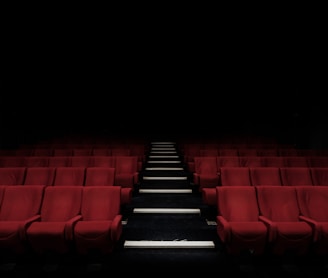Silent Betrayal: Are Hollywood Giants Selling Out Their Classics to AI?
A Scandal Unveiled?!


Do you hear that sound? It's complete silence. Crickets. That's all we have heard in regards to the major film studios' concern over their past films being used to train generative AI. While artists, book authors, and actors have filed lawsuits and been vocal in the media, calling out the ethical dilemmas surrounding AI generated content, the major film studios, represented by the AMPTP (Alliance of Motion Picture and Television Producers), have remained curiously hushed.
The use of generative AI to create deepfakes, AI generated videos, and even synthesized performances has sparked a heated debate in recent months. Many argue that the unbridled use of copyrighted material without permission or fair compensation to the original creators is a gross violation of intellectual property rights. So, why are the film giants not raising their voices in protest?
Some skeptics in the industry are raising eyebrows and questioning if there's more to this silence than meets the eye. Could it be that the AMPTP studios have struck secret deals, selling their vast film and TV catalogs for use in generative AI training? This potential revelation could have far reaching consequences, shaking the foundations of profit-sharing agreements with actors, writers, and other creative professionals involved in these iconic films.
Imagine a world where generative AI can conjure up performances from Hollywood legends of the past, all without seeking consent or sharing the profits with their estates or guilds like SAG-AFTRA that they belonged to. For fans, it might be a dream come true to see beloved actors grace the screen once more. But for those who depend on residuals and fair compensation, it could be a financial nightmare.
It's not just about resurrecting long-gone stars; generative AI has the power to create new content that eerily resembles the works of iconic directors and screenwriters. Who gets credit? Who gets paid? As artists, authors, and actors voice their outrage, why are the studios that hold the keys to these cinematic treasures conspicuously silent?
As technology continues to push the boundaries of what's possible, the debate over intellectual property rights in the AI era rages on. It's high time for the major film studios to break their silence and address these pressing concerns. Their response, or lack thereof, will determine whether they stand as guardians of creative rights or become perceived as enablers of an unregulated AI landscape, potentially undermining the very foundation of the entertainment industry.
In this rapidly evolving world of tech and entertainment, the question remains: Will the studios remain the silent spectators of their own legacy, or will they take a stand to protect the rights of the artists and creators who made their success possible? The clock is ticking, and the silence is deafening.


